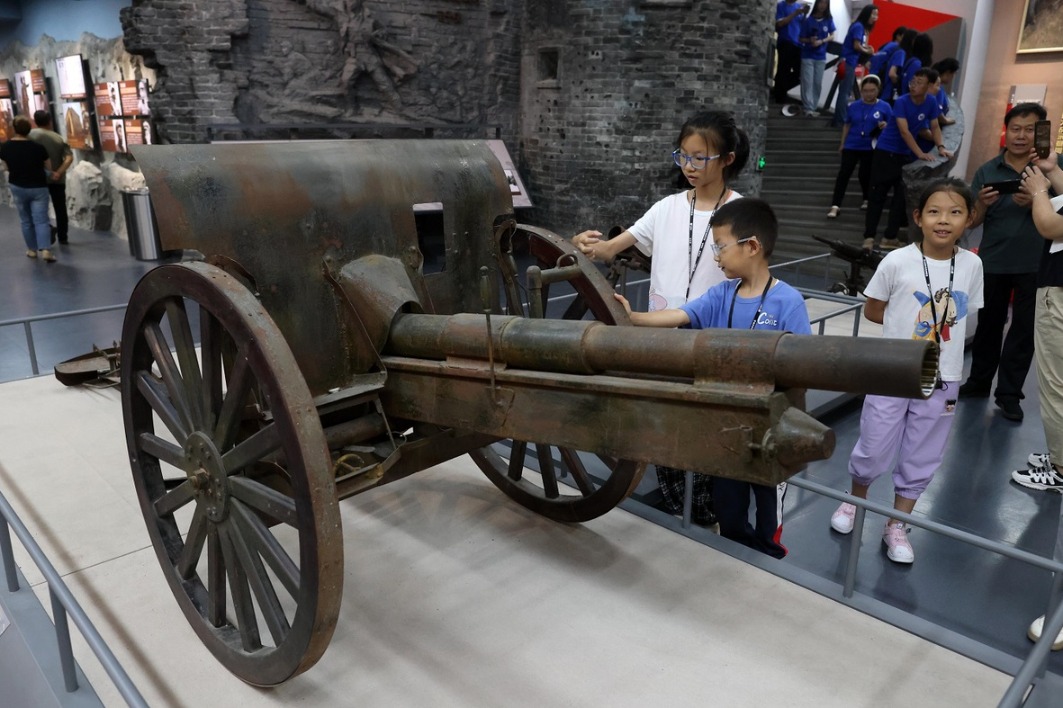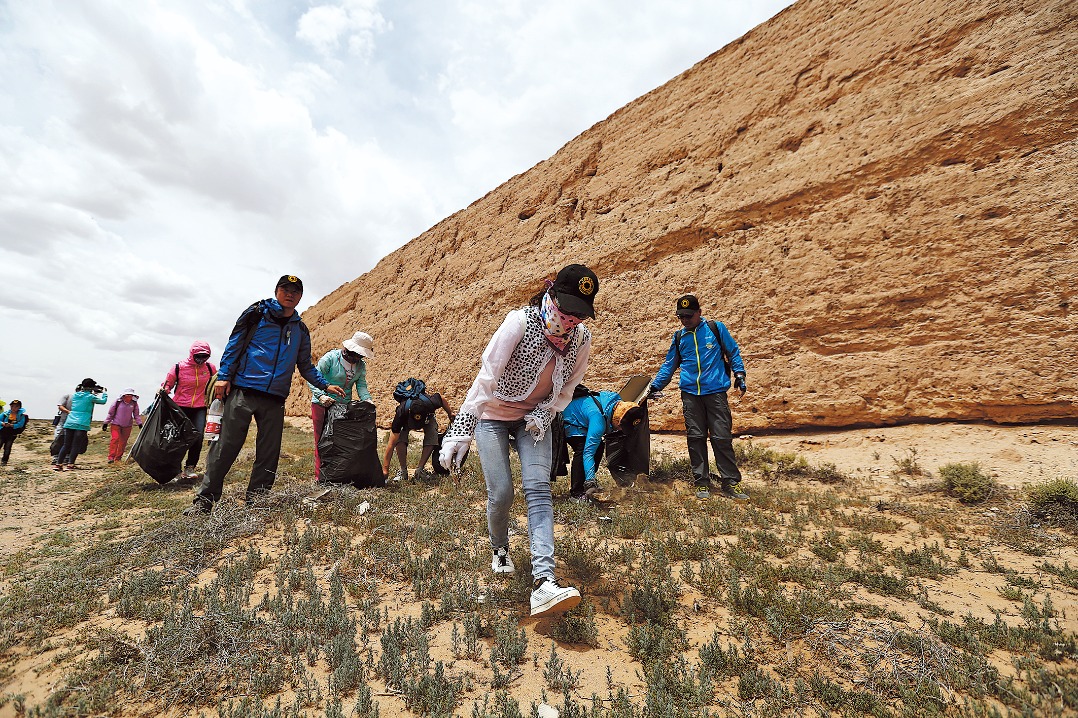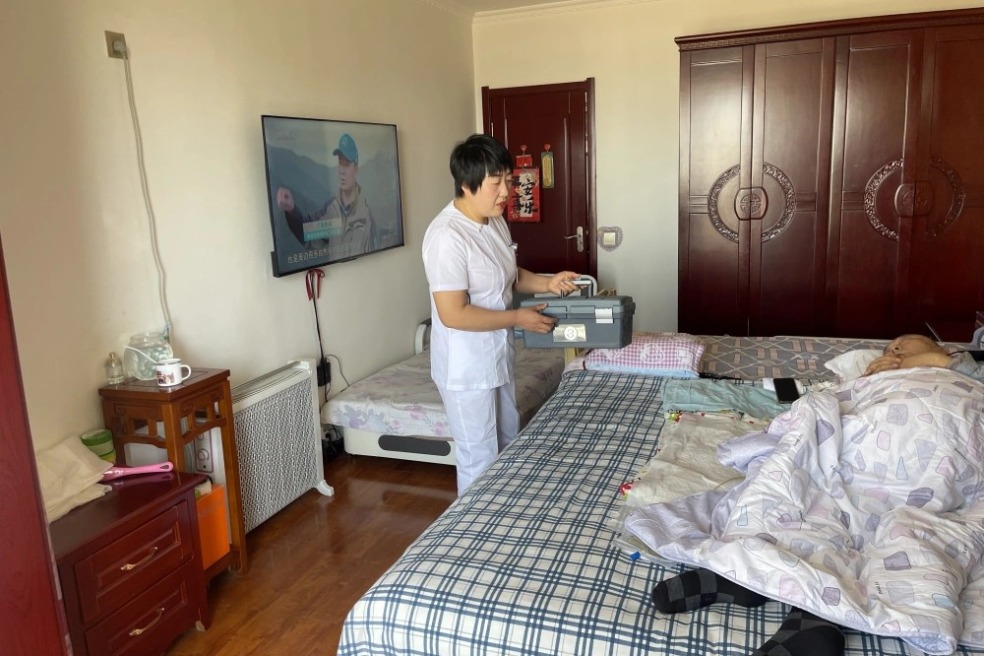Special towns boost provincial economy, create wealth

The lotus is an amazing plant: the flowers are a feast for the eyes; the seeds can add aroma to porridge and soups; tea can be made from the leaves; and even the seed shells can be used to plant mushrooms.
The people of Huashi, a town in Xiangtan, Hunan province, that is a national production and transaction center for lotus seeds, know everything about the secret of "digging gold" from the mud on the bed of the local lake.
On its 1,266-hectare lotus plantation, massive numbers of leaves form an infinite sea of green, embellished with pink flowers and birds, during the summer heat. Locally produced lotus seeds are said to be high in protein, low in fat and have a sweet taste.
After 3,000 years of lotus cultivation in the area, about 30,000 people of the town's population of 100,000 are involved in the business.
The local sector's production value reached 120 million yuan ($18.8 million) last year, raising farmers' incomes by as much as 6 million yuan in total, the local government said.
Tong Gang recalled how he used to earn pocket money by peeling lotus seeds as a child. "Peeling 100 seeds made me 2 fen (a now-extinct sub--division of the yuan), and that's how I earned my tuition," he told Workers' Daily recently.
Tong and his wife run their own company that focuses on the planting, processing and sale of lotus seeds.
During last year's peak period, they received more than 3,000 orders a day on e-commerce platforms, he said. The couple is currently in talks with an animation company in Hunan to create a lotus-themed cartoon movie to expand their brand influence.
In 2016, Hu Peiyuan and a few other young people founded a company in Huashi. Now, the 20-something part-owns an 80-hectare lotus cultivation center and an 8,000-square-meter processing base. Annual production runs to 30,000 metric tons.
During a lotus festival held by the local government last year, about 4,000 tourists came to Hu's water garden to pick lotus plants, with ticket sales generating revenue of 120,000 yuan. Now, the company is also developing bonsai lotus and improved varieties of the plant.
Because Hunan is a major agricultural province, most of the 1,500 towns rely on farming.
As part of a program to promote rural vitalization, the province has established 15 "characteristic agricultural towns" - including Huashi - since 2019 to encourage the development of a range of industries based on their pillar agricultural produce as a way of creating jobs, raising incomes and driving Hunan's economy.
"The towns often have good potential, a complete industry chain, high brand awareness and a good market reputation, which all play important roles in supporting the farmers and agriculture," said Yuan Yanwen, director of the Hunan Department of Agriculture and Rural Affairs.
He added that the towns enjoy preferential policies related to land use, financing and human resources to aid their development.
The first 10, approved in July 2019, included a dark tea production town in Anhua county, a navel orange town in Xinning county, a chile town in Rucheng county, a yellow peaches town in Yanling county and a waxberry town in Jingzhou Miao and Dong autonomous county.
The second batch of five, approved in November, include towns that are focused on green tea, crabs and shrimps.
Despite the COVID-19 outbreak, the production value of the 10 original towns reached more than 28 billion yuan last year, a rise of about 23 percent from 2019. Meanwhile, the per capita disposable income of farmers in those towns was 10 percent higher than the average in their home counties, according to the department.
Similar to the agricultural towns, Hunan has built 10 "characteristic industrial towns" and 20 "characteristic cultural and tourism towns".
One of the characteristic industrial towns, Meitanba in Ningxiang city, has a 350-year history of mining and once served as a coal base for Central China. In 2014, the town closed its 11 coal mines to conserve resources and protect the environment.
As a replacement, it began developing a door manufacturing industry, which was nonexistent in Hunan at the time. So far, the town's 4-square-kilometer door cluster has attracted large numbers of companies. Wang Haifeng, founder of Jiamei Door, was one of the first to move there.
His company began production in 2015, and its output value surpassed 260 million yuan last year. It produces about 300,000 various types of doors per annum. This year, the company purchased 6.8 hectares of land to expand production, according to Wang.
"When the factory was built, the local government helped solve water, electricity, land and transportation issues. It has provided a good business environment," he said.
To date, the cluster has provided 7,900 jobs for local people. Former coal miner Hu Jianqiang said he earns about 7,000 yuan a month, far more than before. In addition, the 41-year-old doesn't have to worry about working underground, and his family's combined income reached about 200,000 yuan last year.
Song Qiang, Party secretary of Meitanba, said doors made in the town are sold across the world, with an emphasis on mid-to-high-end manufacturing, intelligent security systems, fashionable and creative designs and green, eco-friendly materials.
The sector's production value in the town is expected to exceed 12 billion yuan this year, he added.
Other industrial towns include those skilled in the production of porcelain, fireworks, glass, nonferrous metals and agricultural machinery.
Last year, the total production value of the characteristic industrial towns surged 20 percent to more than 80 billion yuan, according to the local authorities.
Langshan, a town in Xinning county, a characteristic cultural and tourism area, is famous for Langshan Mountain, a UNESCO World Natural Heritage site, and its Danxia landform. The area's booming tourism sector has helped to reduce poverty.
Last year, Li Funing, from a family in Langshan's Lixi village, landed a job as a security guard at the Langshan Sun Valley Ecological Park.
He said he used to work odd jobs from time to time, so his income was unstable.
"I have been here for a year. The monthly salary is about 3,000 yuan, plus free food," he said, adding that as he works near home, he can take care of his children and elderly parents.
The park, located on the mountain, offers bed-and-breakfast lodgings, catering, a hot spring, vegetable picking and water sports. Its 15 employees from poor families have all shaken off poverty.
The town has more than 30 boutique B&B hostelries and more than 200 homestays. Last year, Langshan received 5.95 million tourist visits, generating revenue of 4 billion yuan. More than 2,000 locals work in the town's tourism industry.
Despite the impact of COVID-19, the revenue generated in Hunan's cultural and scenic tourism towns was about 16.8 billion yuan last year, a rise of 5 percent from 2019, and provided 170,000 jobs.
Developing industries in rural areas based on their special resources is an important measure in realizing the country's rural vitalization strategy, according to the central rural work conference held in Beijing in December.
The "characteristic towns" program has been part of the Hunan government's efforts to promote the development of rural areas, drive the provincial economy and improve people's livelihoods under the national framework of rural vitalization in recent years.
Zhu Youfang in Changsha contributed to this story.
- Chang'e 6 samples show moon's asymmetry
- Vice-premier calls for more efficient policy implementation
- Top political adviser urges sustained pairing assistance to Xinjiang
- Top legislator stresses high-quality legislative work
- Global representatives hail Shanghai's achievements
- National health body bans use of LVA surgery to treat Alzheimer's





































